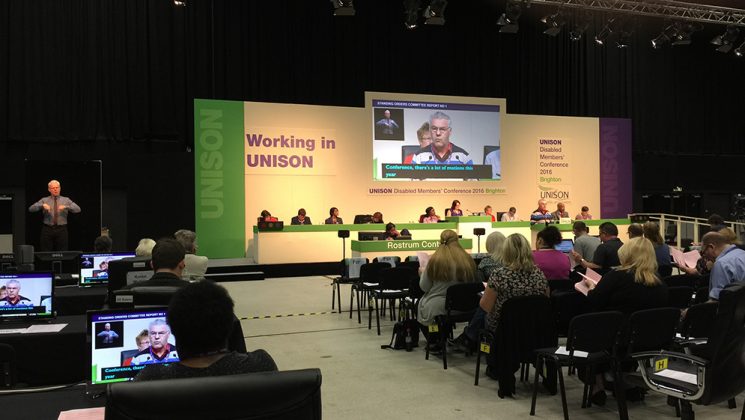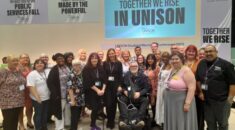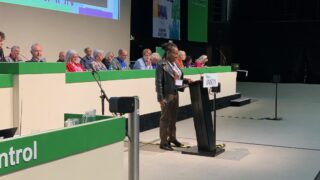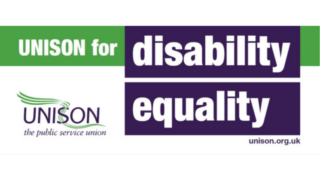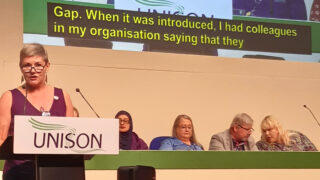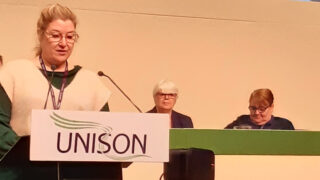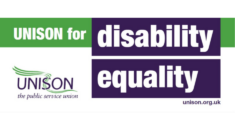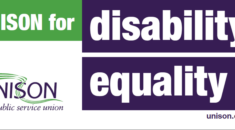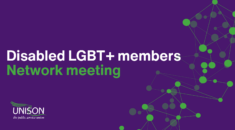UNISON members are being bullied, harassed and attacked from all sides because of their disabilities, delegates to the union’s disabled members’ conference in Brighton heard this morning.
In a debate on phased returns to work, Craig Martin from the national disabled members’ committee explained that, in many cases, these are being denied by employers, either on the basis of claimed “operational needs” or through ignorance.
He reported that he had represented a member who had had breast cancer, leading to a double mastectomy, other treatments and with the entirely expected depression alongside.
Occupational health and human resources agreed that she needed a long phased return, but the employer said it wasn’t possible, using “emotional blackmail” and saying that “the children would be let down”.
This was a situation where the union was able to help, but further empowerment is needed to reduce such behaviour and such attitudes, he said.
Yet that’s only one sort of example of the far wider problems.
Research from Cardiff University has found that 21% of people with learning disability are subjected to violence – in their workplace. That’s compared to 10% of disabled workers overall and 5% of workers with no disability.
“How can that be allowed?” one speaker asked.
Maureen Le Marinel from Lancashire police called for a campaign to raise the issues, pointing out that, while the union “won’t accept bullying of anyone – bullying of disabled people is a hate crime”.
The national young members’ forum also highlighted the success of Scotland’s own anti-bullying campaign, Gonnae No Dae That.
Speaking on a motion from the national women’s caucus, Paula Carlisle told delegates of the negative impact of poor policies on disability leave, citing a case where an employee faced a final warning when a workplace doctor dismissed her own GP’s diagnosis of a hidden disability.
The union was able to help that member, but Ms Carlisle said that, while the Equality Act “talks of protected qualities”, it still depends on whether or not an individual employer has a good policy in place.
And “it’s frightening that such draconian cultures are finding their way into the workplace,” she noted.
Other speakers talked of disabilities that are being “overlooked” by employers, and stressed too that even other members do not know that disability leave exists and that they can fight for and access it.
Conference backed the call for an end to a one-size-hits-all approach, and among other things, instructed the national committee to “investigate the benefits of employers adopting a more person-centred approach to sickness absence”.
Delegates also heard how Black workers face problems at work because of the lack of understanding of conditions such as sickle cell, thalassemia and lupus, which disproportionately affect Black people, and can mean that absences trigger disciplinary and capability procedures.
Paulette White for the Black members’ caucus called on conference to support members in such situations and delegates agreed to call on the national committee to work with other parts of the union to create a briefing paper on the issues, together with dyslexia and dyspraxia, which are often misdiagnosed in Black people, with employers treating issues caused by them as being “performance related”.

